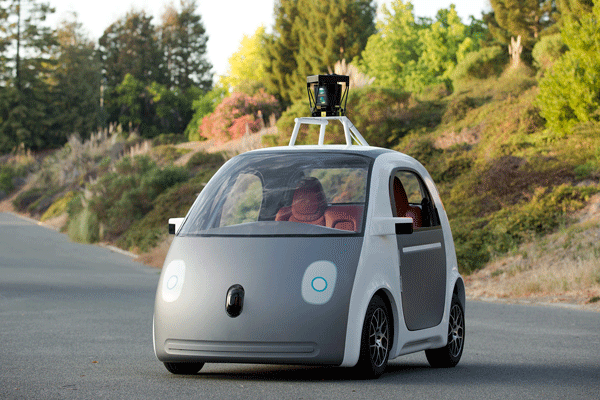
Do driverless cars have a future?
The motor car has come a long way since the Model T Ford rattled around streets at the beginning of the last century. Its relentless evolution over the past 100 years has had a transformative effect on how we live our lives in so many ways. And it seems that this push for progress shows no signs of abating anytime soon, especially now that Google have started testing the driverless car.
The concept of an autonomous car is actually nothing new. Numerous experiments have been conducted since the 1920s with some of the first fully-operational vehicles appearing in the mid 1980s. While these never really left the prototype stage, automation has already started to relieve the driver’s burden at least some of the time. Self-parking cars are a typical example.
But Google’s latest venture takes things a step further by fully automating the process. The steering wheel is completely done away with and all driving duties are taken over by the on-board computer, with the aid of GPS and sensors. Although tests have been largely successful in a number of US states, the recent collision with a bus in California raised a few eye-brows, with some questioning the viability of driverless technology.
Despite the incident, which Google put down to a software failure of sorts, it’s pretty evident that there is indeed a future for driverless transportation. Google’s cars have already driven over 1 million miles without a driver and with no other accidents to speak of. So the technology seems to be working well, with future refinements to the software already planned. And although reliability doesn’t always guarantee that something will catch on (remember the Sinclair C5?), the driverless car has garnered big-money support from the US Government with transport secretary Anthony Foxx pouring some $4 billion into the technology. So its development has major political and financial clout behind it.
The public appetite for the technology is not quite so certain. But as the phrase goes, ‘time and tide waits for no man’ which probably means that we’re going to get driverless cars whether we like it or not. And, upon closer examination, it’s apparent that the driverless revolution has the potential to drastically change our lives for the better. There are obvious benefits of having a driverless car for long journeys for instance, with added space for passengers, due to the omission of the steering wheel and pedals. This means that the interior layout of a car can be radically altered for comfort and practicality. Driver fatigue will also be eliminated completely.
In terms of work, driverless cars also afford occupants the opportunity to complete additional tasks to and from the workplace. While this may be loathe by those who prefer not to take their work home with them, for others it’s a great way of increasing productivity levels. With this in mind, it’s still worth pointing out that driverless technology is a long way from becoming widespread. But although the transition is not going to be easy there’s little doubt that the technology has a decidedly bright future.
Switch your insurance to Tradex today.